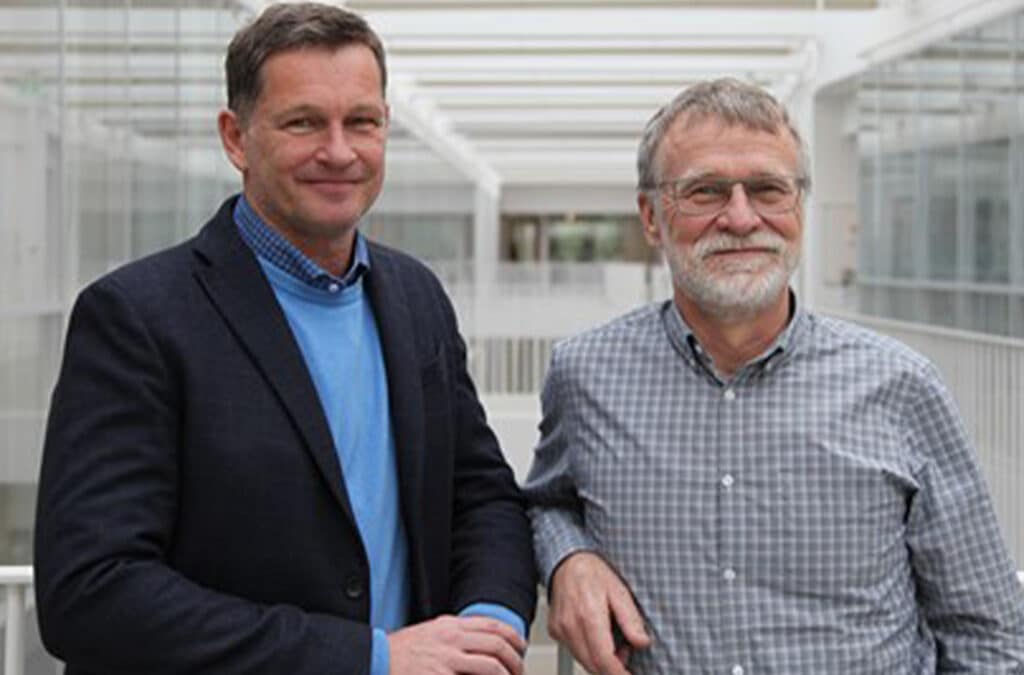Danish universities – all in for the Sustainable Development Goals
24-03-20
“The University of Southern Denmark is deeply engaged in working with the global Sustainable Development Goals,” said Dean Henrik Bindslev at the launch of the new Global Sustainable Production Section. Other Danish universities and higher education institutions are doing the same.
By Pernille Friis
The Sustainable Development Goals (SDGs) and global sustainability are becoming an integrated part of learning and teaching, of science and research, and of organizational governance and operations at universities in Denmark.
This also applies to the University of Southern Denmark (SDU). The Global Sustainable Production Section at the Faculty of Engineering, launched on 26 February 2020, is the latest of several initiatives to strengthen SDU’s focus on the SDGs. Other initiatives have been to develop new master’s and other graduate degree programmes related to the SDGs and to provide all new students starting the university with a foundation SDG course. An SDG summit is held annually to develop ideas and initiatives on how best to work with the Global Goals.
“The new Global Sustainability Production Section promotes cross faculty learning based on a multi-stakeholder perspective in sustainable production education,” said Professor Jan Vang Brambini-Pedersen, head of the new section, during the launch.
He explained that one of the university’s important roles is to provide new insight and solutions to the challenges society faces across its many sectors. He will therefore make sure that the new section has close links with the public authorities and private companies involved in both occupational health and safety, and global production and supply chains.
“The only way to reach the Global Goals is if everyone – private sector, public sector and academia – collaborate and make use of each other’s expertise,” said Jan Vang Brambini-Pedersen.
In the video, Jan Vang Brambini-Pedersen presents a case at the University of Southern Denmark’s SDG Summit in 2019 that illustrates how to work with the Sustainable Development Goals. The video is in Danish.
Several initiatives
Other universities in Denmark are moving in the same direction. At the University of Copenhagen, the Sustainability Science Centre has been established as a catalyst for research and educational initiatives to address issues relevant to the SDGs and the general sustainable development of society. The centre promotes sustainability science by developing a transdisciplinary, cross-faculty framework for studying, combined with a system based approach.
Another example is the Copenhagen Business School’s Sustainability Influencers’ Programme. It aims to make all university students aware of the importance of the Sustainable Development Goals, and to empower and inspire them to act more sustainable.
Danida supported research and the SDGs
The SDGs also make up the overall thematic framework for Danish development cooperation and support to development research.
“All Danida supported research collaboration projects must address one or more of the SDGs and many integrate the sustainability perspective as a central aspect of the research,” said Ulla Næsby Tawiah, Director, Danida Fellowship Centre.
Under this umbrella, two new Danida funded research projects are being started up by the Global Sustainable Production Section at SDU. The project Safety and health and audit practices in Bangladesh will be led by Professor Peter Hasle, and the project Overcoming barriers to improving OHS among SME in Myanmar will be led by Professor Jan Vang Brambini-Pedersen. The findings of the two research projects will feed into the Strategic Sector Cooperation (SSC) between Denmark and Bangladesh and Myanmar respectively in the area of Occupational Health and Safety (OHS).

To the left Professor Jan Vang Brambini-Pedersen and to the right Professor Peter Hasle
Moving away from a silo mentality
Research in global sustainability is not only important for bringing about sustainable change using sustainable solutions but also for learning and teaching at universities. Research findings and results from across the sectors are integrated into courses and modules, thereby equipping the younger generation with approaches and tools for working with sustainable development with an interdisciplinary perspective. Moving away from working with a silo mentality is imperative for a global sustainable future.
According to Henrik Bindslev, Dean at The University of Southern Denmark, it is important to link research in production systems and supply chains with our social responsibility as consumers in Denmark. Production must be seen in a global perspective and we have a responsibility for the sustainability of the production of the goods we consume – also when the production is located in Bangladesh or Myanmar.
Contributing all we have
“We are citizens of the world. The sustainability perspective is gaining ground at all levels of society,” said Henrik Bindslev.
He noted that many are becoming more conscientious in their behaviour as private consumers, and that companies are adjusting their strategies to include, not only economic, but also social sustainability in production.
“If we want to reach the SDGs by 2030, everyone must contribute to the best of their abilities. This is why we integrate a broad sustainability perspective at the Faculty of Engineering and at SDU as a whole,” said Henrik Bindslev.
Go back to our stories
